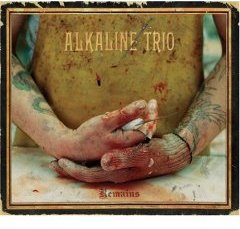 Film: The Punk Syndrome
Film: The Punk Syndrome
Directors: J-P Passi and Jukka Kärkkäinen
Writers: Jukka Kärkkäinen, Jani-Petteri Passi, and Sami Janhukainen
“They give me pig food in the nuthouse.
I keep my mouth shut,
Otherwise I’ll be stabbed.
I don’t want a summer vacation?
I can’t visit anyone because I make too much noise,
And I’d have to turn down the stereos.
Pertti is mentally disabled.
Pertti gets no coffee.
Pertti has a speech defect
And can’t throw a disco party.”
– lyrics by Pertti Kurikka and Kari Aalto of the Finnish punk band Pertti Kurikan Nimipäivät (Pertti Kurikan’s Birthday)
If anyone has the right and reason to create punk rock, It’s people with developmental challenges.
Think about it: they’re underemployed, ignored, despised, marginalised, and forced to conform to a world that has no interest in their self-actualisation. Their stress is often compounded by psychological issues; the conditions of their lives can bring on mental illnesses that rarely find a therapist qualified to treat them. In more enlightened societies they’re forced to earn their snack and smoke money by tying doodads onto thingamabobs.
Wouldn’t you be mad?
A case in point: nobody can speak for the rest of us against The Man with greater conviction than Finnish punk band Pertti Kurikan Nimipäivät.
And It’s not just their social status that makes them good punks. Within punk culture handicaps have always been seen as glamourous, brandished like existential battle scars. In the world of punk?where musical complexity, grandstanding, and egotism are ever accursed?angry, mentally challenged musicians rule.
So, check yourself before doubting whether those with learning disabilities have what it takes to write and play music. I’m not privy to the latest scientific research in this area, but in my experience these people often manifest a capacity to learn and play music That’s miles beyond their abilities in other areas; It’s as if the part of the brain capable of creating music somehow thrives independently of intellectual limitations.
Besides, disabilities can be assets. In Pertti Kurikan Nimipäivät, bass player, Sami Helle, and drummer, Toni Valitalo, both have Down’s syndrome, which would enable them to learn their instruments by imitating others. The lead guitarist Pertti is autistic, which would help him to focus long enough to master basic rhythm chords. It doesn’t hurt that he’s a sophisticated music fan and that he carefully records his angst in a daily journal that lyricist and lead singer Kari Aalto uses to construct songs.
Kari’s vocal delivery is punk par excellence, hard-driven by the beat of his own rage. The music is raw, real, and stirring?classic punk at its best.
The experience of being recognised and admired as artists visibly improves these men in a number of ways. As much as I deride the practice of sheltered workshops that oblige the handicapped to do mindless repetitive work, I can’t get away from the good, old, Protestant work-ethic that affirms the redemptive quality of it. Even work that may, at the time, seem meaningless and futile. In The Punk Syndrome, we watch as the hard work involved in putting together a repertoire actually aids the struggle with fears, anger, and relational issues. By the time the band has achieved a tour in Germany, conflicts within the group have smoothed out, and Pertti has lost his speech defect.
The directors remark in an interview that the hardest thing about finishing this documentary was leaving the company of these four musicians. The film refuses to sugar-coat the difficulty of looking after those who can’t always follow the norms of social propriety, but the flip side of their brutal honesty is the immediacy of their affections, loyalties, and values.
It’s touching, for example, after hearing Kari tell his girlfriend, Sirrka, “don’t worry, you’ll get some after these people leave,” to discover that he really doesn’t know anything about sex. When his manager loans him a video showing a loving couple’s intimate moments, a look of serenity encompasses him. Not long afterward he decides to marry Sirrka.
The Punk Syndrome manifests nine of the Mindful Bard’s criteria for films well worth seeing.
– It’s authentic, original, and delightful.
– It poses and admirably responds to questions that have a direct bearing on my view of existence.
– It harmoniously unites art with social action, saving me from both seclusion in an ivory tower and slavery to someone else’s political agenda.
– It provides respite from a sick and cruel world, a respite enabling me to renew myself for a return to mindful artistic endeavor.
– It’s about attainment of the true self.
– It inspires an awareness of the sanctity of creation.
– It displays an engagement with and compassionate response to suffering.
– It makes me want to be a better artist.
– It makes me appreciate that life is a complex and rare phenomena, making living a unique opportunity.


